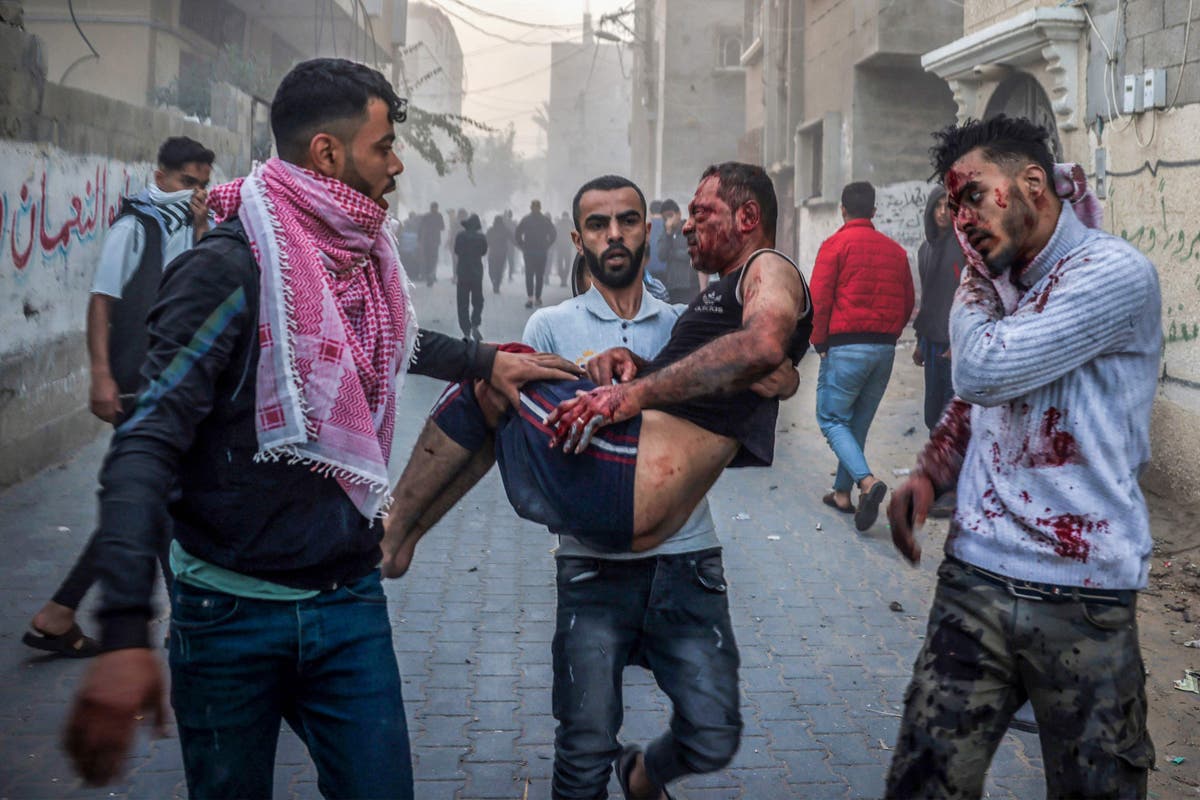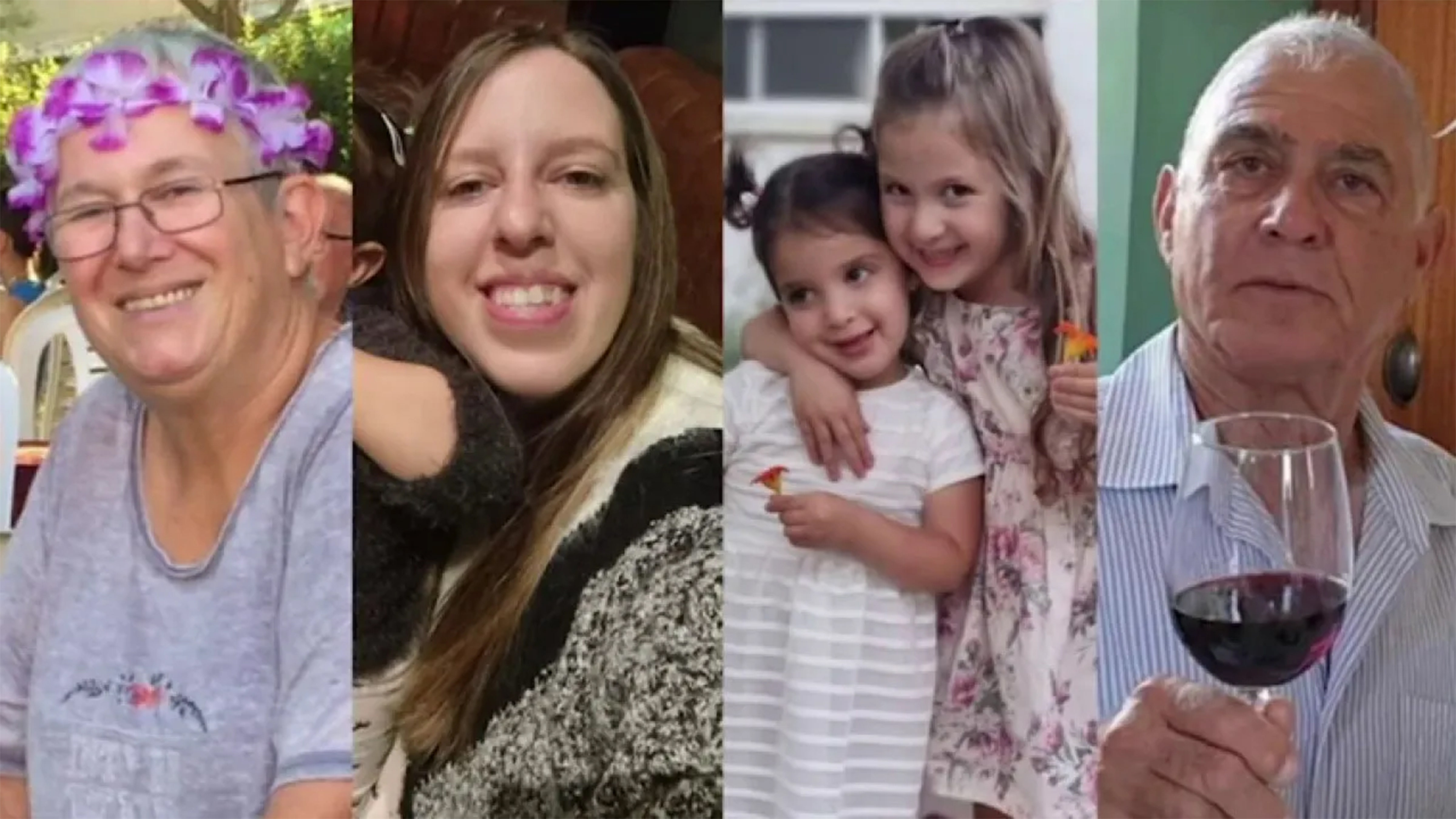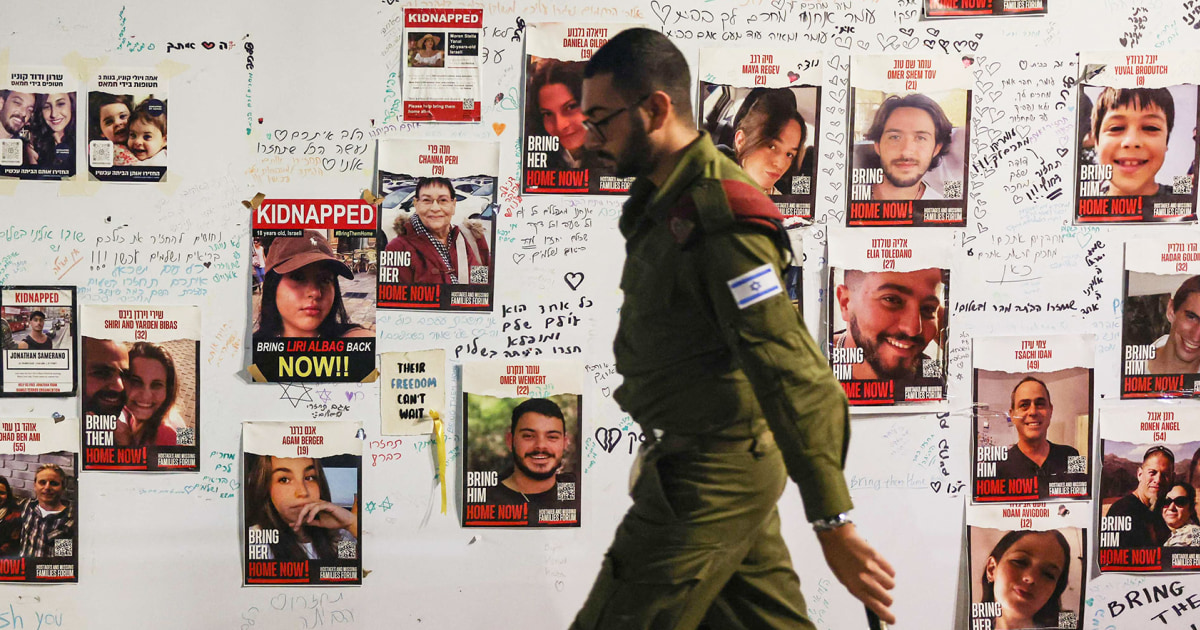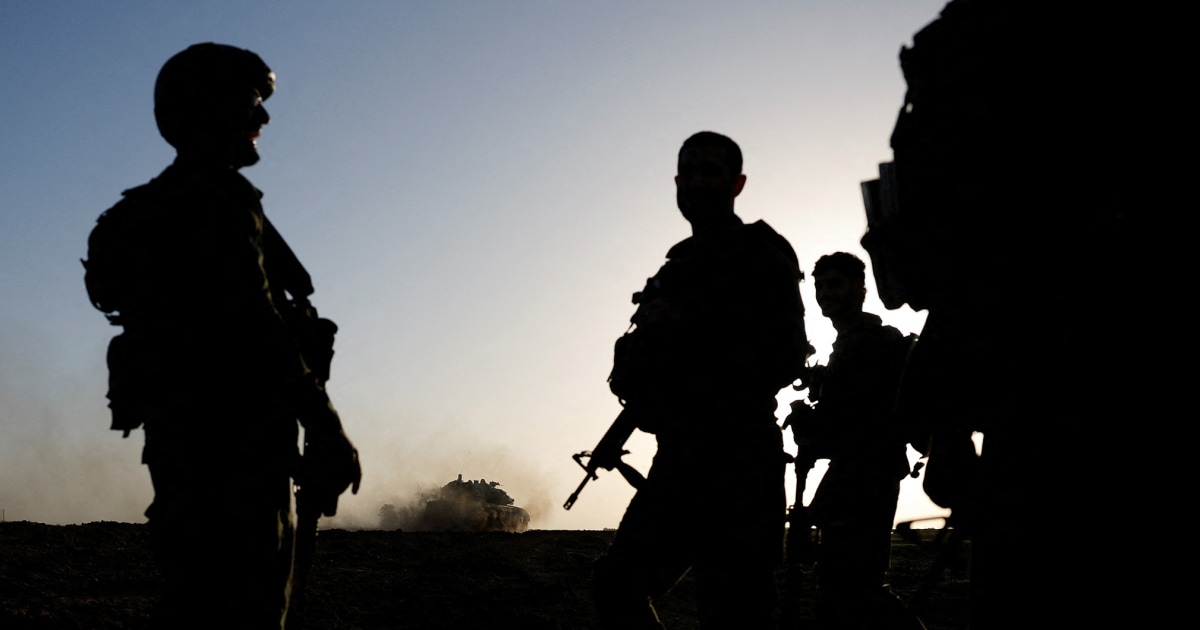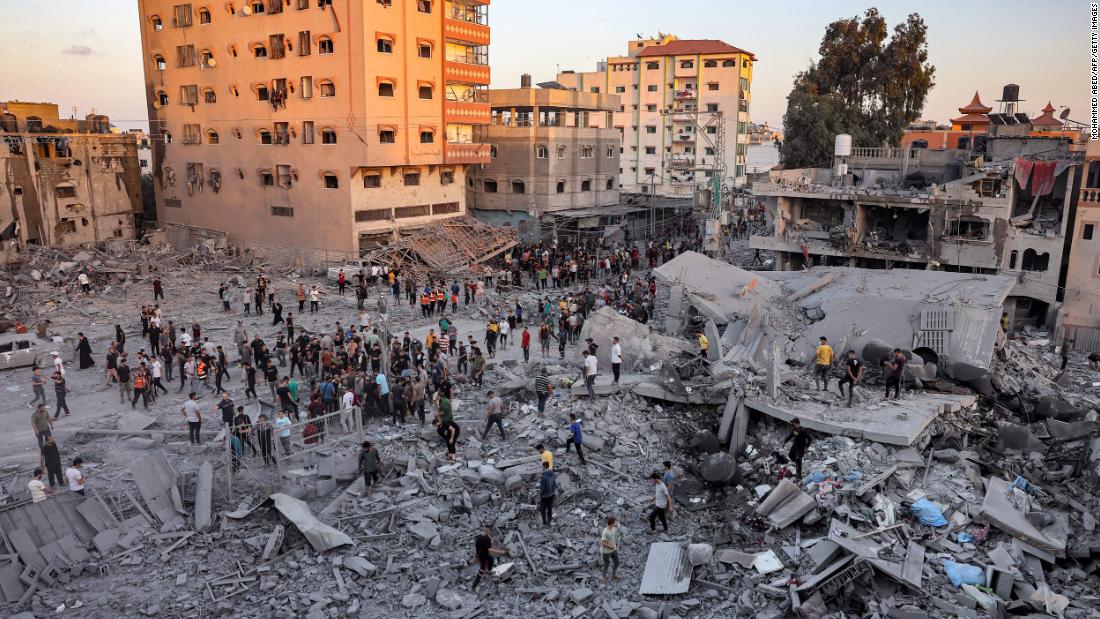Gaza ceasefire: 13 Israeli hostages to be freed as four-day truce begins
Thirteen Israeli hostages will be released from Gaza on Friday at the start of a four-day truce that Qatar called a “catalyst for long-term peace” and a “glimmer of light at the end of tunnel”.
Under the terms of the breakthrough deal, brokered by Doha and Washington, Hamas militants will free 50 women and children they abducted in exchange for the release of 150 Palestinian women and teenagers from Israeli prisons.
The agreement, secured after weeks of fraught negotiations, also allows for the pause in hostilities to be extended daily provided more hostages are released.
Majed al-Ansari, spokesperson for the Qatari foreign ministry, told The Independent the world must use the “momentum” from the truce to end the bloodshed.
Related: ‘Dogs are eating corpses on the streets of Gaza’
“Our hope is that this deal will be the catalyst for peace which we need, for a viable negotiation for an end to this war,” the top diplomat said.
“The only way forward is for a ‘proof of concept’ of peace to happen through this deal: for people to go home to their families and for the pressure to mount on both sides, to show that talking can get you results on the ground.”
The view from the Israeli side of the border with the Gaza Strip on Thursday, showing the impact of Israeli strikes
(AFP via )“If we are able to create the necessary momentum through the release of the civilians this will make negotiations over the rest of the hostages easier,” Mr al-Ansari said.
At least 13 women and children, the most vulnerable hostages, are expected to cross into Israel on Friday afternoon in tandem with the first territory-wide ceasefire since Israel unleashed its ferocious bombardment of Gaza.
Diplomatic sources told The Independent that, after the hostages are transferred to Israel, they will be met by doctors and psychologists and transported to hospitals for care.
Later, Palestinian women and children are expected to be released in exchange. Israel has named 300 detainees it said are eligible for release; the youngest is 14, and offences recorded on the list range from attempted murder to throwing stones.
Mr al-Ansari said the four-day pause would also provide a vital window for locating all 240 of the hostages believed to have been abducted by Hamas during its bloody assault on southern Israel on October 7. Among those taken into Gaza are two British citizens and 10 Americans as well as a baby aged just 10 months.
Sources close to the negotiations said one of the challenges has been that Hamas does not know exactly where all the captives are, sparking fears some may never be found.
A woman and child flee an Israeli strike in Rafah in southern Gaza on Thursday
(AFP via )One diplomatic source said the Israelis believe that Hamas only has direct access to 80 hostages, Palestinian Islamic Jihad is holding between 30 to 40, leaving the whereabouts, and so fate, of over 100 hostages uncertain.
“We have been informed by Hamas that not all the hostages are with them. Some of them are not even with the [other armed] factions, they are with lay people,” Mr Al-Ansari said.
“There is an issue with information right now. Obviously under constant bombardment, you can’t collect intelligence, you can’t collect information on the ground,” he continued.
Qatar hopes the truce could be a building block for the release of other hostages, such as military personnel, that would trickiest to extract from Gaza.
That will be a tough sell; facing mourning pressure from hostages’ families. Israeli prime minister Benjamin Netanyahu has backed this deal. However he repeatedly emphasised the truce is temporary, telling foreign secretary David Cameron during his visit to Israel on Thursday that Israel will “continue with our war aims, namely to eradicate Hamas” once the deal expires.
Israel’s military has announced plans to push deeper into southern Gaza, where hundreds of thousands of displaced Palestinians are sheltering – a move Qatar fears may reduce the chances of freeing more hostages.
Qatar foreign ministry spokesman Majed Al-Ansari briefs journalists in Doha about the ceasefire deal
(REUTERS)“It makes our job more difficult. Any kind of escalation whether it be expanding military operations, bombing civilian [infrastructure] hospitals and schools - set us back so many steps,” Mr al-Ansari said.
“If we are able to create the necessary momentum through the release of the civilians this will make negotiations over the rest of the hostages easier. Unless there is real pressure from the international community on both sides of this conflict that this has to end now, this will not stop.”
Israel has unleashed its heaviest ever bombardment of Gaza since the October 7 attack by Hamas militants.
Friday’s truce will begin at 7am, with aid “going in as soon as possible,” Qatari officials said.
Mr al-Ansari said the first batch of hostages, including the 13 women and children, will be freed at around 4pm local time.
Itay Chen, centre, was taken in the October 7 attack
(Ruby Chen)The diplomatic breakthrough promised some relief for the 2.3 million Palestinians in Gaza who have endured weeks of Israeli bombardment, as well as families in Israel fearful for the fate of their loved one s held hostage for seven weeks.
The father of one captive Itay Chen, a 19-year-old American-Israeli conscript who was not eligible for release, said all the families were drawing hope from the deal as “just the first step.”
“There must be a continuation to the next leg of the releases,” Ruby Chen said. “This framework that has been created can be the catalyst for other deals going forward. The most important and only topic is getting the hostages home.”
The process has been tense. The deal appeared to hit a last-minute snag on Wednesday when Israel's national security adviser, Tzachi Hanegbi, announced a one-day delay to the ceasefire, without providing a reason. However, on Thursday evening the two sides finally exchanged lists of those to be freed.
Alongside the releases will be a much-needed pause in hostilities and the delivery of aid, which Mr al-Ansari said was vital as the humanitarian crisis in Gaza was “unparalleled in the world”.
The health ministry in Hamas-run Gaza says the Israeli bombardment has killed over 13,000 people; its officials reported on Thursday that more hospitals had been given evacuation orders by the Israeli military, which the army denies.
Civilians in Gaza told The Independent fighting had increased in the run-up to the ceasefire, and expressed fears the truce would not hold for the full four days.
The Israeli military warned it would be “business as usual” until the truce takes effect, and that strikes might even “intensify” until it does.
Mr al-Ansari warned the war was a “constant stream of death and destruction that will not stop” unless the world capitalised on the deal.
“The only way for people to be pressured into choosing peace is defined by this ... small glimmer of light at the end of the tunnel,” he said.
“We know that we shouldn’t be under any illusions that this deal is the end of the conflict. This is the beginning of the process that we hope will end the war but we are certainly out of the woods.”
